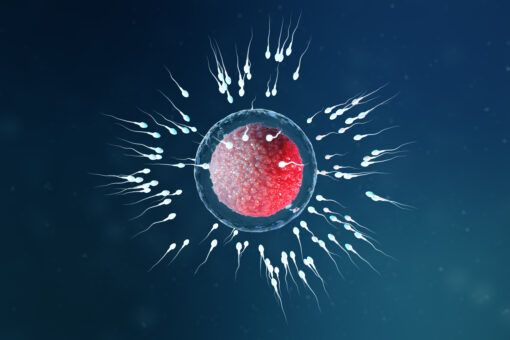
Gametogenesis is the process by which eggs and sperm (gametes) develop, from their origin as stem cells in the early human embryo, into mature gametes capable of fertilisation. In vitro gametogenesis (IVG) is an area of scientific research which aims to replicate this process outside of the human body – growing gametes developed from stem cells, in a laboratory.
The report says that as IVG research advances, it has the potential to raise significant new ethical questions. It calls for scientists, ethicists, policymakers and regulators to work together to carefully consider the implications of this technology and its possible applications, before they are considered for use in the clinic. It also identifies a need for public engagement on the issue.
If IVG was considered ethically acceptable, safe and effective for use in assisted reproduction, it could help to improve and expand treatment options, offering people new ways to have a child. For example, IVG could provide a less burdensome alternative to current egg retrieval practices for mainstream IVF. It could also enable same-sex couples to have a child who is genetically related to both parents. And it could be used to increase the number of embryos available for preimplantation genetic testing (PGT) – a process where embryos are checked for specific genetic traits or conditions before they are used in fertility treatment.
However, the report highlights key ethical concerns around unintended consequences such as whether IVG and screening technologies could be used to select traits in human embryos other than those related to health (e.g. relating to appearance or other characteristics).
It also describes future possibilities where the use of IVG could enable children to be created with sperm and egg from one person, or from multiple people – meaning they would receive genetic contributions from more than two people. These potential applications raise profound ethical questions about the balance of benefits, costs and risks both for individuals and for wider society.
IVG embryos currently fall into a regulatory gap, which means legal updates might be required to explicitly regulate research, e.g. to create IVG embryos, as well as any future use in treatment. These updates could be achieved through amendments to the HFE Act, or via the introduction of a power to make regulations (secondary legislation) as was the case for mitochondrial donation treatment.
The report suggests that governance decisions need to consider the status and rights of any individuals whose stem cells are used to create gametes in vitro, what consent regime should apply, and what access children born from such gametes should have to their genetic information.
Another consideration highlighted in the report is the impact that IVG could have for legal parenthood, especially if more than two people are involved in creating the gametes, or if someone’s cells are taken without their consent to create gametes for reproductive use.
IVG research is moving at pace, driven in part by strong commercial interest and investment in the field. Whilst we don’t know how soon – if ever – human gametes might be successfully created in vitro, the potentially significant societal implications and ethical questions raised merit proactive consideration.
Ranveig Svenning Berg, Research and Policy Manager, Nuffield Council on Bioethics
We’re pleased to have worked with colleagues from the Future of Human Reproduction research team to identify the pressing questions raised by IVG research that should inform current discussions about future-proofing the regulation of fertility treatment and research in the UK. These considerations will help to ensure that research continues to align with public values and priorities in how novel reproductive technologies are appraised.”
We are grateful for this opportunity to have worked with colleagues from the Nuffield Council on Bioethics. IVG remains in the early stages of clinical development but, if successful, could transform current fertility treatments and open up new possibilities for biological parenthood, including potentially a child with two male or two female genetic parents. Before any application in human reproduction is considered, however, it is essential that there is a thorough, well-informed debate about any ethical, legal, or policy implications. This report seeks to make a positive contribution to that process.“
Stephen Wilkinson, Distinguished Professor of Bioethics at Lancaster University, Future of Human Reproduction Project Lead and Member of the Nuffield Council on Bioethics